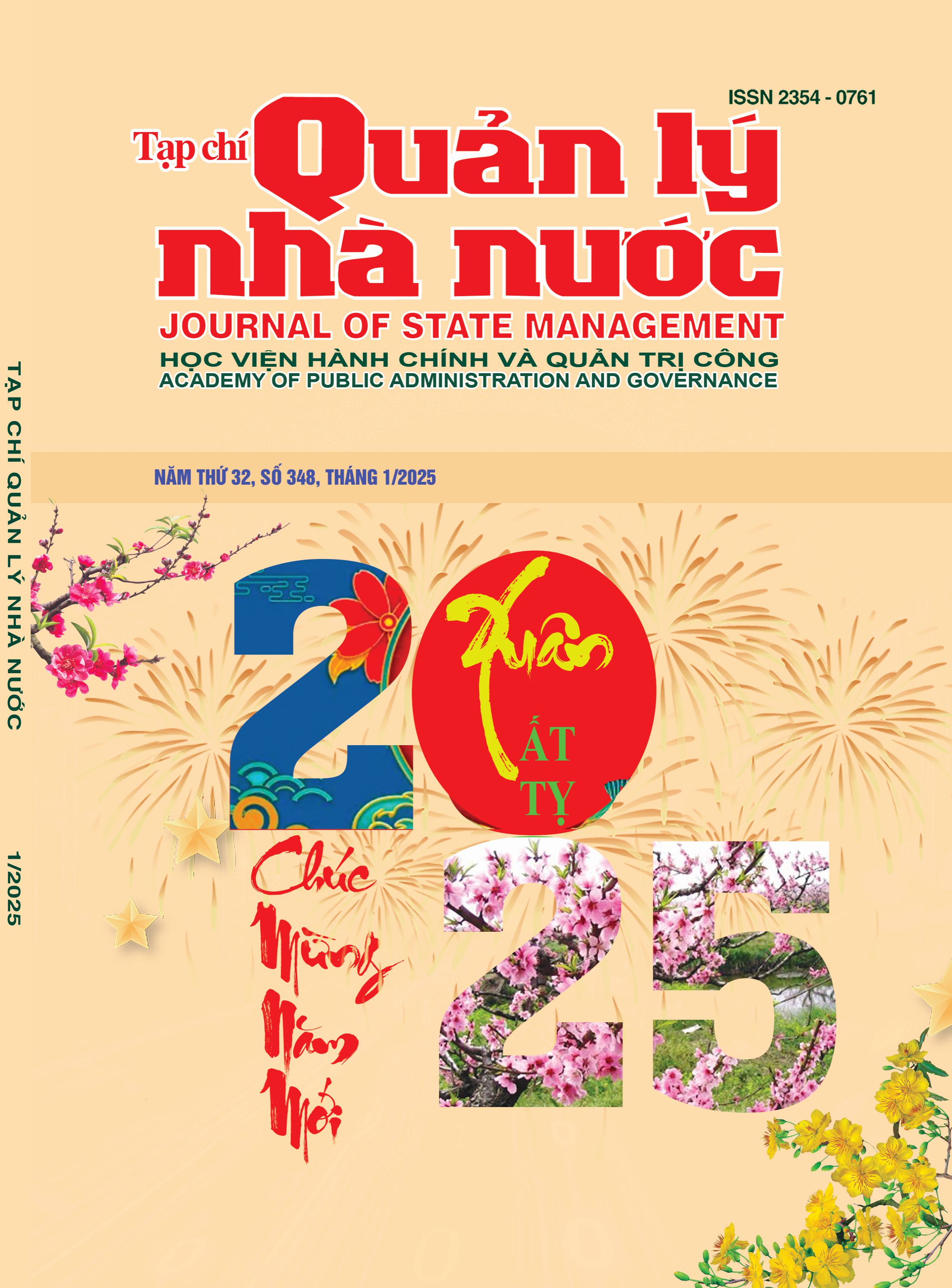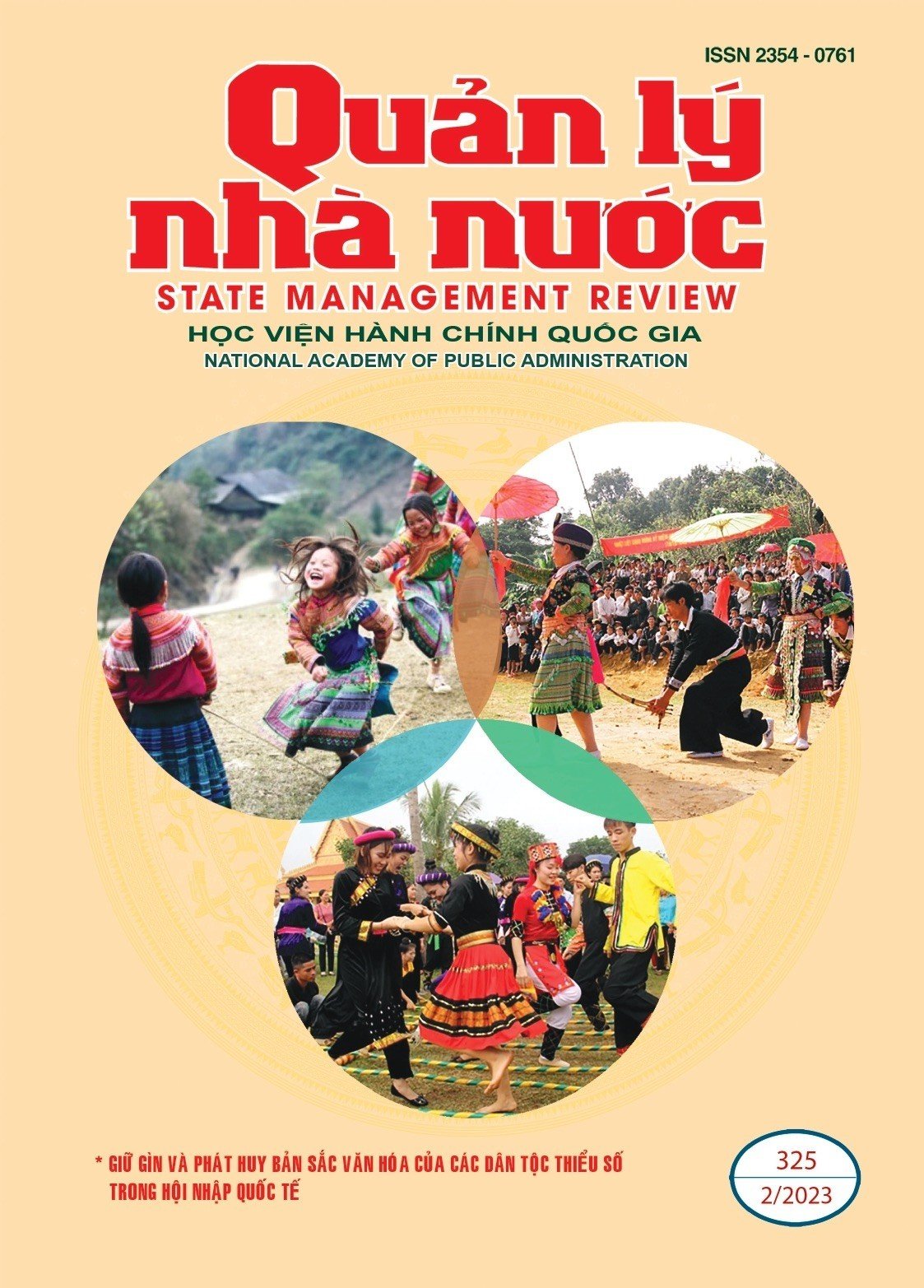Ứng dụng công nghệ số để thúc đẩy kinh tế xanh ở Nhật Bản và giá trị tham khảo cho Việt Nam
DOI:
https://doi.org/10.59394/qlnn.348.2025.1073Từ khóa:
Công nghệ số, kinh tế xanh, phát triển bền vững, kinh nghiệm, Nhật Bản, Việt Nam, giá trị tham khảoTóm tắt
Nhật Bản đã thành công trong việc ứng dụng các công nghệ số tiên tiến như: AI, IoT, Blockchain để nâng cao hiệu quả sử dụng tài nguyên và giảm thiểu ô nhiễm. Bài viết phân tích vai trò của công nghệ số trong việc thúc đẩy kinh tế xanh tại Nhật Bản và đưa ra những giá trị tham khảo cũng như đề xuất một số giải pháp để phát triển kinh tế xanh bền vững cho Việt Nam.
Tài liệu tham khảo
Luo, K., Liu, Y., Chen, P.-F., & Zeng, M. (2022). Assessing the Impact of Digital Economy on Green Development Efficiency in the Yangtze River Economic Belt. Energy Economics, 112, 106127. doi:10.1016/j.eneco.2022.106127
Loiseau, Eleonore; Saikku, Laura; An- tikainen, Riina; Droste, Nils; Hansjürgens, Bernd; Pitkänen, Kati; Leskinen, Pekka; Kuikman, Peter; Thomsen, Marianne (2016). Green economy and related concepts: An overview (PDF). Journal of Cleaner Production. 139: 361 - 371. doi:10.1016/j.jclepro.2016.08.024
Fernando, Z. J. (2023). Green Economy for Green Victimology: Preventing Environmental Crime and Protecting Victims Through Sustainable Economic Policies. Iop Conference Series Earth and Environmental Science, 1270(1), 012032. doi:10.1088/17551315/1270/1/012032
Rodiyah, R. (2023). Capturing the Oppor- tunity of Green Economic Policy for Environ- mental Sustainability. Iop Conference Series Earth and Environmental Science, 1248(1), 012035. doi:10.1088/1755-1315/1248/1/012035
Abid, N., Ikram, M., Wu, J., & Ferasso, M. (2021). Towards Environmental Sustainability: Exploring the Nexus Among ISO 14001, Governance Indicators and Green Economy in Pak- istan. Sustainable Production and Consumption, 27, 653 - 666. doi:10.1016/j.spc.2021.01.024
Anggraeni, V. M. P., Achsanta, A. F., & Purnomowati, N. H. (2023). Measuring Opportu- nities: Transforming Indonesia’s Economy Through Utilizing Natural Resources for Sustain- able Development Through Green Economy Indicators. Iop Conference Series Earth and Environmental Science, 1180(1), 012011. doi:10.1088/1755-1315/1180/1/012011
Borowski, P. F. (2021). Digitization, Digital Twins, Blockchain, and Industry 4.0 as Elements of Management Process in Enterprises in the Energy Sector. Energies, 14(7), 1885. doi:10.3390/en14071885
Noorollahi, Y., Kalantari, A., Saifoddin, A., & Yousefi, H. (2021). Distributed Wind and Solar Power for Grid Sustainability and Emission Re- duction. Environmental Progress & Sustainable Energy, 40(6). doi:10.1002/ep.13686
Zhou, X. (2023). Efficiency Optimization Strategies for Wind-Solar Driven Hydrogen En- ergy Storage Systems. Advances in Engineering Technology Research, 9(1), 83. doi:10.56028/aetr.9.1.83.2024
Essa, M. E. M., El-shafeey, A. M., Omar, A., Fathi, A. E., Ahmed Sabry Abo El, M., Lotfy, J. V. W., & El-Sayed, M. S. (2023). Reliable Integration of Neural Network and Internet of Things for Forecasting, Controlling, and Monitoring of Ex- perimental Building Management System. Sus- tainability, 15(3), 2168. doi:10.3390/su15032168
Alam, S., & Islam, K. (2021). Examining the Role of Environmental Corporate Social Re- sponsibility in Building Green Corporate Image and Green Competitive Advantage. International Journal of Corporate Social Responsibility, 6(1). doi:10.1186/s40991-021-00062-w
Hou, W. (2023). Applications of Big Data Technology in Intelligent Transportation System. Highlights in Science Engineering and Technol- ogy, 37, 64 - 71. doi:10.54097/hset.v37i.6040
Guo, X., & Guo, X. (2023). A Research on Blockchain Technology: Urban Intelligent Trans- portation Systems in Developing Countries. Ieee Access, 11, 40724 - 40740. doi:10.1109/access.2023.3270100






